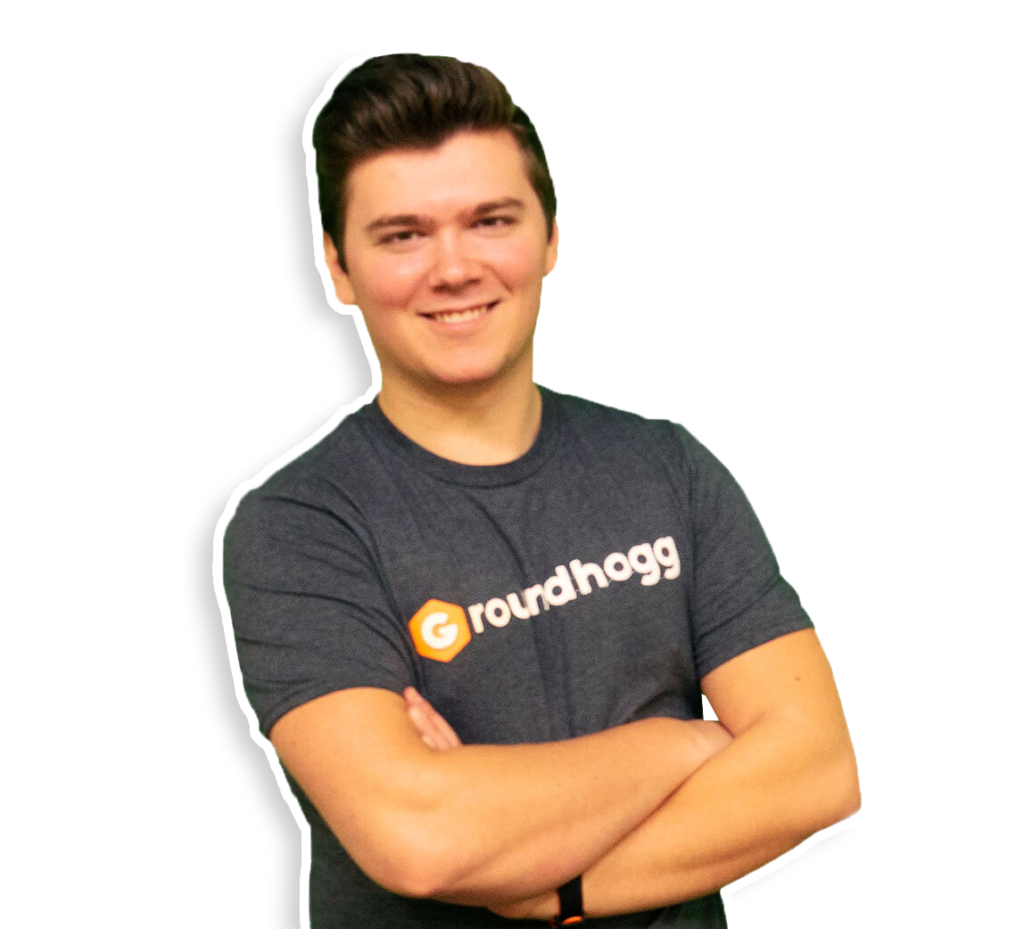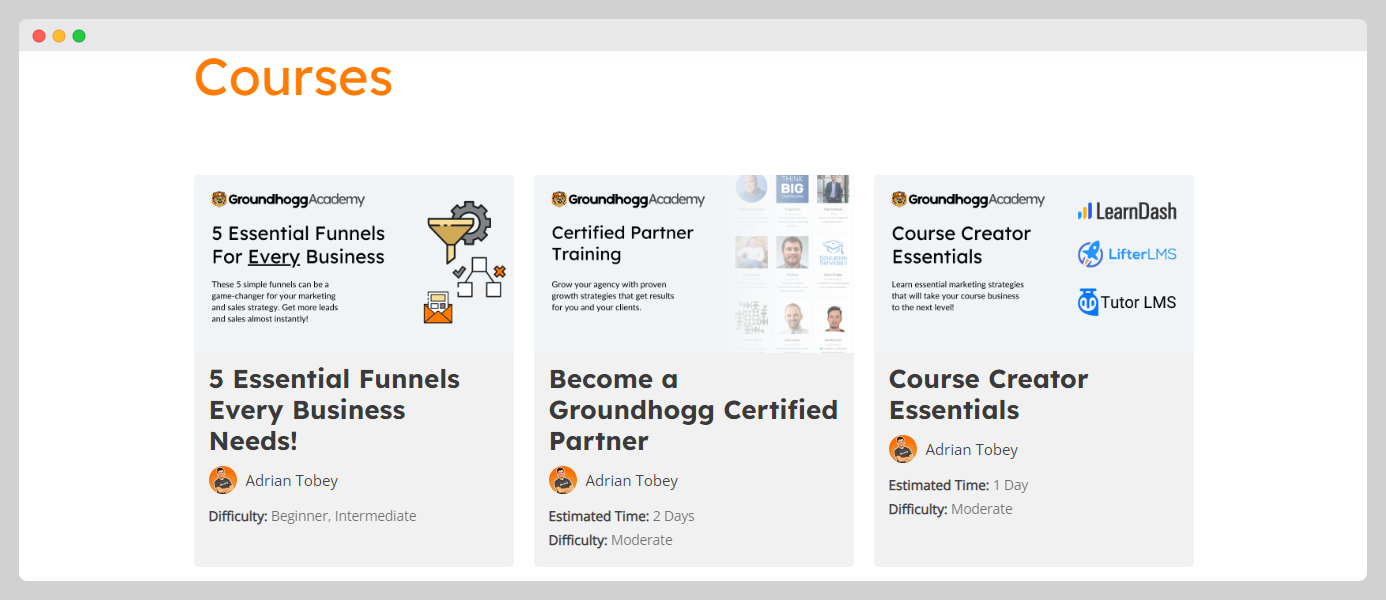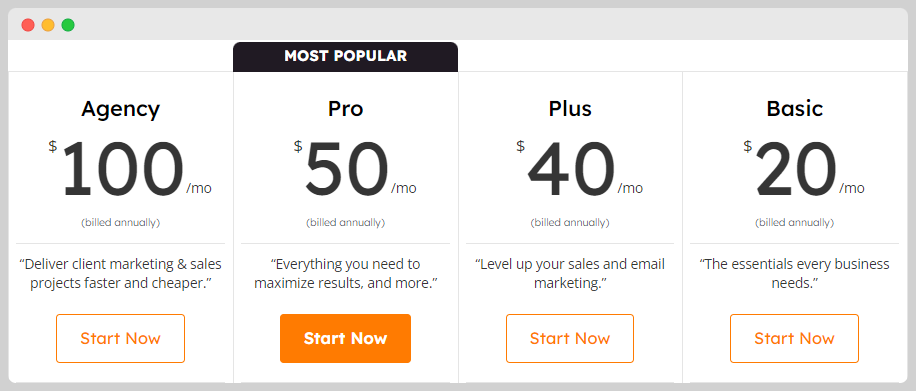How This 21-Year-Old Built a $300K ARR CRM Business in 2 Years
Who is Adrian Tobey?
Adrian Tobey, the founder of Groundhogg, hails from Toronto, Canada, and dropped out of the University of Toronto's computer science program to pursue his passion for WordPress plugin development after gaining significant hands-on experience at his parents' digital marketing agency.

What problem does Groundhogg solve?
Groundhogg alleviates the financial burden and data dependency small businesses face with traditional SaaS CRMs and marketing automation tools, by offering an affordable, self-hosted WordPress plugin that ensures full control over their data and scalable, predictable pricing.
How did Adrian come up with the idea for Groundhogg?
Adrian Tobey realized there was a significant gap in the WordPress ecosystem for an integrated CRM and marketing automation tool while working at his parents' digital marketing agency. He frequently encountered frustrations with existing solutions, particularly Infusionsoft, which had clunky and outdated web forms. This pain point inspired him to initially create a simple solution for better forms, which evolved into a broader vision.
To validate his idea, Adrian engaged with the WordPress community and his network of agency clients, identifying recurring issues and gauging interest in a comprehensive solution. He built the initial version of Groundhogg himself and released it to gather user feedback. The positive response and constructive criticism helped him refine the product, making it more robust and user-friendly.
Challenges like customer skepticism and the complexity of educating users about the new self-hosted CRM model were significant. However, Adrian relied on organic growth strategies like podcast appearances and engaging in industry-specific groups, which also offered crucial user feedback. The key lesson was the importance of directly addressing identified customer needs and continuously iterating based on real-user experiences.
How did Adrian build the initial version of Groundhogg?
Adrian Tobey, the founder of Groundhogg, developed the minimum viable product (MVP) over the course of three intense months from August to November 2018. Utilizing his deep familiarity with WordPress and his skills from previous projects like FormLift, he built the self-hosted CRM and marketing automation tool directly as a WordPress plugin. The MVP included essential features such as a CRM, an email builder, a user journey map, and reporting functionalities.
The initial development phase was arduous, filled with numerous coding challenges and debugging sessions to get the product to a stable and usable state. Adrian had to quickly iterate on feedback and constantly improve the software’s user experience and interface. His initial prototype was janky and had a subpar user experience, but it worked for its intended purpose. This rapid development and iterative process helped him launch the first version of Groundhogg to early users, who provided crucial feedback for subsequent improvements. By focusing on solving real pain points and leveraging his knowledge of the WordPress ecosystem, Adrian efficiently built a product that quickly attracted hundreds of customers.
What were the initial startup costs for Groundhogg?
- Expenses in First Year (2019): The company had $130,000 in expenses.
- Initial Funding: Groundhogg was funded with a loan from the founder’s family.
How did Adrian launch Groundhogg and get initial traction?
Podcasts
Adrian Tobey reached out to numerous podcasters within the WordPress community and beyond to see if he could land interviews. He appeared on shows like the WP Builds podcast and the WP-Tonic Show. These podcast appearances allowed him to talk about Groundhogg, share his expertise, and explain how his product could benefit potential users.
Why it worked: Podcasts often have a loyal and engaged audience. When Adrian appeared on these podcasts, listeners were more likely to trust him and check out Groundhogg. The significant advantage was that it cost zero dollars, helping him to drive organic traffic to the website without any advertising spend.
Industry Groups and Partnerships
Adrian actively contributed to key industry Facebook Groups related to WordPress and digital marketing. He engaged with members, answered questions, and participated in discussions. Additionally, some Facebook group owners requested "group deals" for their members, which Adrian provided, offering special discounts.
Why it worked: Engaging in industry-specific groups allowed Adrian to directly connect with his target audience. Offering group deals not only incentivized early adoption but also created a sense of community and trust around Groundhogg. This grassroots strategy proved beneficial on a bootstrap budget.
Metrics:
- By early January 2019, Adrian had accrued hundreds of customers.
- Within 18 months, Groundhogg garnered over 1,200 clients.
- Achieved $25,000 in monthly recurring revenue by July 2024.
Family and Personal Network
Groundhogg’s very first customers came from Adrian’s personal network, particularly his father's digital marketing agency. His father supported the product by purchasing Groundhogg licenses for all his clients and transitioning them from Infusionsoft to Groundhogg.
Why it worked: Leveraging an existing network provided initial validation and trust for Groundhogg. These early adopters helped showcase the product to a broader audience and provided the critical initial cash flow and testimonials necessary for further growth.
Free Training and Support
Adrian created Groundhogg Academy, a free learning center using LifterLMS, another WordPress product. He provided quick-start courses and pre-populated campaigns to simplify the transition for new users. Multiple support channels, including live weekly office hours on Facebook, were also set up.
Why it worked: Offering valuable free training and robust support built trust and reduced the learning curve for new users, increasing customer satisfaction and retention. It also established Groundhogg as a supportive and customer-centric company, encouraging word-of-mouth referrals.
What was the growth strategy for Groundhogg and how did they scale?
Podcasts
Adrian reached out to many podcasters and requested interviews. These podcast appearances became an excellent organic way to drive traffic to the Groundhogg website. It didn't cost money, just time, and Adrian did as many as possible. This strategy brought significant attention from the WordPress community and supplemented their initial marketing efforts effectively.
Why it worked: Podcasts offer a direct way to appeal to specific industry communities. By participating in WordPress-related podcasts, Adrian tapped into an already interested audience. His presence on these platforms built credibility and trust, driving traffic and sales from highly relevant listeners.
Industry Facebook Groups
Adrian actively contributed to key industry Facebook Groups. Some group owners even asked for a "group deal" for his product, which he provided at the beginning. This proved to be a winning low-cost strategy to introduce Groundhogg to potential customers in a trusted environment.
Why it worked: Industry-specific Facebook groups gather people with a common interest, making it easier to reach a targeted audience. Offering group deals encouraged communities to support and try the product collectively, leveraging the influence and trust within these groups.
Groundhogg Academy and Ongoing Training
Adrian created the Groundhogg™ Academy on LifterLMS, populated it with Quick Start courses, and made it free to all users. He also conducted Live Weekly Office Hours every Tuesday, providing ongoing training and support.

Why it worked: Offering free, high-quality training materials and live support significantly increased customer success and satisfaction. It made it easier for new users to get started, reduced churn, and fostered a community of informed and engaged users.
Certified Partner Program
Groundhogg developed a Certified Partner Program, including digital marketing agencies who implement Groundhogg for their clients. This program offered partners training and a recurring commission of up to 30%.
Why it worked: This approach leveraged the existing customer base and market reach of digital marketing agencies. By providing a strong incentive through a 30% commission, Groundhogg motivated these partners to promote and implement their software widely, driving significant growth and sales.
What's the pricing strategy for Groundhogg?
Groundhogg offers marketing automation and CRM for WordPress at three pricing tiers: Basic at $20/month, Plus at $30/month, and Pro at $40/month, with a flat rate regardless of email list size.

What were the biggest lessons learned from building Groundhogg?
- Leverage Organic Marketing Channels: Groundhogg grew its customer base quickly by utilizing low-cost strategies such as podcast interviews and contributions in industry-specific Facebook groups. This approach is highly effective, especially for founders operating on a tight budget.
- Tailor Communication to Customer Types: Adrian’s understanding of different communication styles (Controller, Promoter, Analytic, Supporter) allowed Groundhogg to engage efficiently with its diverse customer base. This personalized approach facilitated better customer support and enhanced customer satisfaction.
- Build Partnerships and Collaborations: Groundhogg benefitted significantly from partnerships with other WordPress product creators and digital agencies. Collaborations and integrations acted as a powerful channel for customer acquisition, helping to build credibility and expand reach.
- Iterate on Pricing Models: Groundhogg learned the importance of aligning its pricing with perceived value. Initially underpriced, the company adjusted its pricing strategy to match the market expectations, which significantly improved its sales and credibility.
- Focus on Customer Retention: By creating Groundhogg Academy and offering comprehensive support through various channels (office hours, Facebook groups, live chat, etc.), the company maintained an impressively low churn rate. This focus on customer success and support proved crucial for long-term growth and profitability.
Discover Similar Business Ideas Like Groundhogg
Rezi, an AI-powered resume builder, skyrocketed from a simple $9.69 Microsoft Word template to serving over 2.6 million job seekers and achieving a monthly recurring revenue of $215K, showing how clever branding, strategic early decisions, and creative growth hacking can turn a side project into a profitable SaaS business.
A passionate computer-coder entrepreneur shares the story behind his successful PDFShift business which after a year and a half generates $3.2k of monthly revenues with the focus now on growth.
More about Groundhogg:
Who is the owner of Groundhogg?
Adrian Tobey is the founder of Groundhogg.
When did Adrian Tobey start Groundhogg?
2018
What is Adrian Tobey's net worth?
Adrian Tobey's business makes an average of $25K/month.
How much money has Adrian Tobey made from Groundhogg?
Adrian Tobey started the business in 2018, and currently makes an average of $300K/year.

Download the report and join our email newsletter packed with business ideas and money-making opportunities, backed by real-life case studies.

Download the report and join our email newsletter packed with business ideas and money-making opportunities, backed by real-life case studies.

Download the report and join our email newsletter packed with business ideas and money-making opportunities, backed by real-life case studies.

Download the report and join our email newsletter packed with business ideas and money-making opportunities, backed by real-life case studies.

Download the report and join our email newsletter packed with business ideas and money-making opportunities, backed by real-life case studies.

Download the report and join our email newsletter packed with business ideas and money-making opportunities, backed by real-life case studies.

Download the report and join our email newsletter packed with business ideas and money-making opportunities, backed by real-life case studies.

Download the report and join our email newsletter packed with business ideas and money-making opportunities, backed by real-life case studies.




